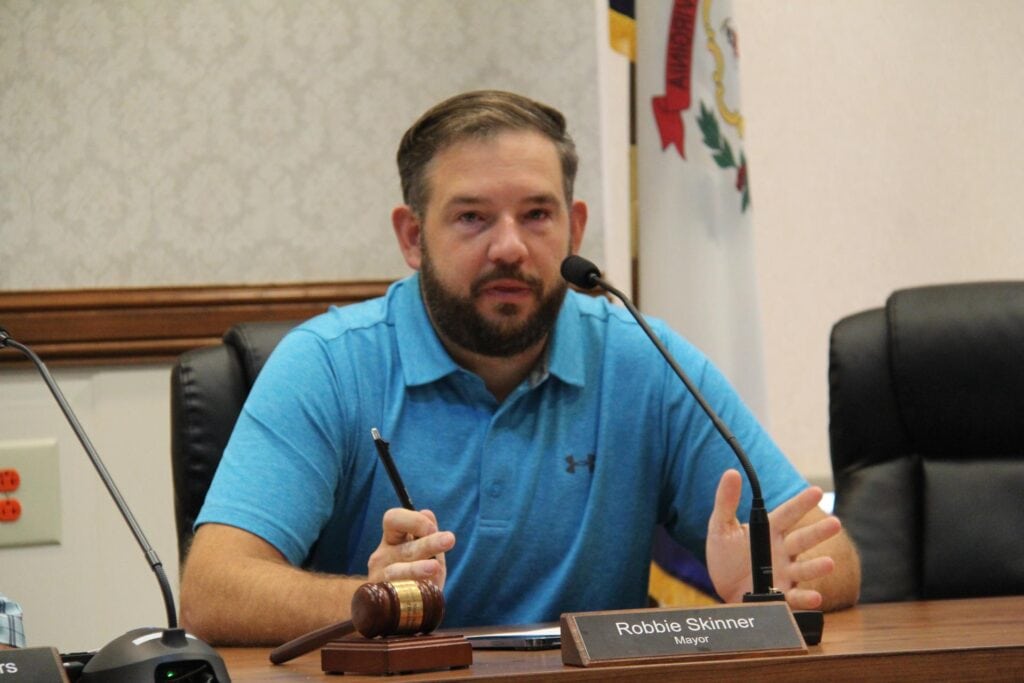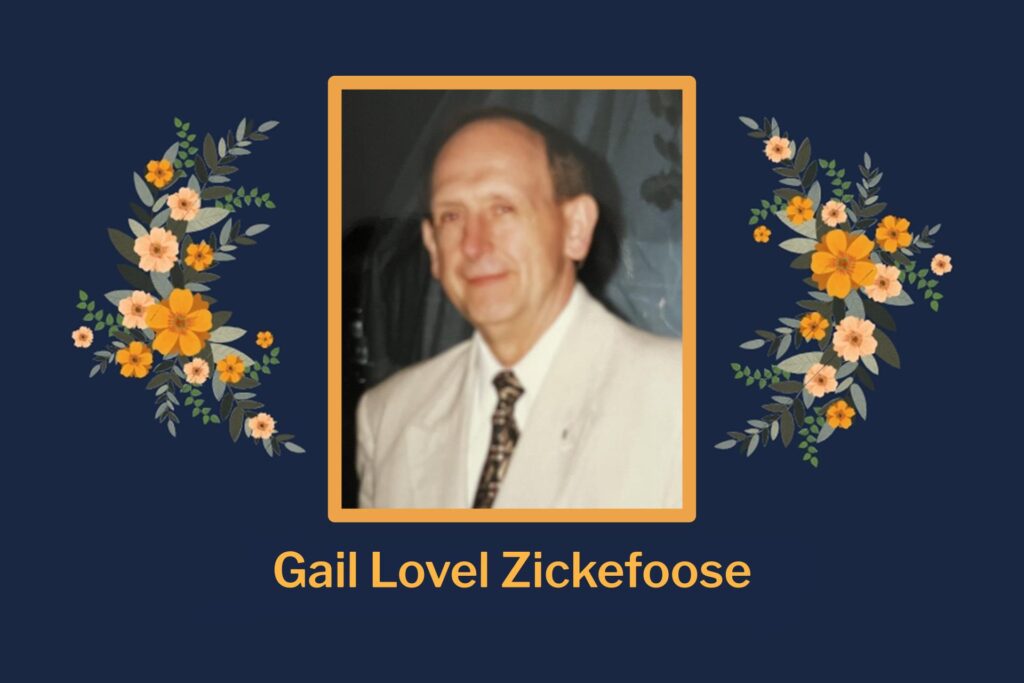BUCKHANNON – Three decades ago, the seeds of Community Care of West Virginia began to grow out of a single clinic in Rock Cave – the Tri-County Health Clinic – when it hired Rick Simon as its chief executive officer.
By the time Simon retired exactly 30 years later, on Sept. 13, 2023, Community Care of West Virginia had become a Federally Qualified Health Center that operated 16 community health center locations, 51 school-based health clinic sites, seven 340(b) pharmacies and one dental office.
Simon has now passed the reins to new CEO Trish Collett and the entire team he has gathered and trained over the years. He recently reflected on his many years with Community Care.
“I’m 70 years old, and I have a strong management team from top to bottom,” Simon told My Buckhannon. “The person who replaced me is exceptionally strong, bright and will provide good leadership, so when you reach a certain age, you hand over the controls to other people who are younger and ready to be leaders.”
“If I’ve done my job and hired the right people, if I’ve worked and helped those people within my system grow, then no one should ever miss me,” Simon said. “I hope they miss my bad jokes, and I will miss all of them, but as far as anyone seeing any changes in care, you probably won’t see a lot of changes.”
Collett said Simon played a significant role in adapting health care to the needs of communities in central West Virginia.
“He has been instrumental in changing the landscape of health care delivery from Tri-County Health Clinic to an organization that has expanded over his 30 years as a CEO for Community Care of West Virginia,” Collett said. “He had foresight into the changing environment of health care to make improvements, and part of that was making sure everyone could have access to health care in the communities that we are located.”
Before beginning his tenure at Community Care, Simon worked in the world of higher education.
“Most people in higher ed move from school to school via promotions, so I’ve worked at three colleges and universities, and I came back to West Virginia because my kids were becoming teenagers, I wanted them to have more of an environment that I had growing up,” Simon said.
“I came back for that purpose,” he added. “I worked for a short time at a hospital that I did not enjoy. There wasn’t anything wrong with the place; it just wasn’t a good fit for me.”
Eventually, he heard about a position with the Tri-County Health Clinic, which was meant to be a three-year venture.
“I promised that I’d be there for three years, and now it’s 30 years later,” Simon said. “It was an interesting job, and things changed a lot within the health care industry, but it was also very much a job that you felt like you were doing something worthwhile. I never felt anything like that when I was working in higher ed.”
“There were a lot of dedicated people over there – we were very small, we were eight employees – so it was a much smaller environment than what I was used to, but it was enjoyable,” he said.
Collett said she and Simon have worked together periodically for the last 27 years.
“I’ve worked with him on and off in different avenues of health care for 27 years, so we have worked in coordination for 27 of his 30 years,” Collett said. “His expertise has rubbed off on me, and we’ve had an opportunity to share our differences, with me being a health care provider myself and with his administrative background. He has created a positive workforce environment that has grown Community Care to what it is today.”
Tri-County Health Clinic began in 1980, and Simon joined the team Sept. 13, 1993.
“It was very easy to become attached to a project where so many people put their love and concern for the community into it,” Simon said. “That’s how Community Care began, and that’s how we’ve always operated – with the community in mind – and we’ve moved forward and grown tremendously.”
Simon was reminded of a friend who lived in Rock Cave who used to say, “Rock Cave was the center of the Earth,” and Simon had always responded, “I guess you’ll start seeing superheroes if that’s the case.”
“I didn’t realize how true that was,” he said. “It became the center of the universe in the sense that those folks who were pouring concrete, donating dollars and pennies, and school kids who were collecting things, all these people could not have imagined the impact that they would have on the greater Central West Virginia community 40 years later.”
“We rebranded this as Community Care, but the whole idea of Community Care is based on that spirit, and the ideas that were given to us by those folks at Rock Cave 40 years ago,” Simon added.
They had to change the name from Tri-County Health Clinic because Community Care exists in more than three counties now.
“About 22 or 23 years ago, we were pretty much broke, and we weren’t broke through anything that we had done incorrectly, but we had such a large number of people who were paying a very minimal cost for care, and we had too many people,” Simon said. “We were doing very good care, and the financials didn’t match.”
Simon knew the entity needed to find a remedy.
“I went to the board at that time and said that one of two things had to happen: we had to find a benefactor, or we had to expand our patient base to include different groups,” he recalled.
He warned the board that bringing someone in as a benefactor to take over Tri-County Health Clinic could result in the loss of their mission and goals.
“If you let somebody take you over, you won’t control the mission, you won’t control your future, and I told them if we expand and develop our system, then we’ll have five or six or seven very rough years financially because anyone expanding a small business knows you suffer the stresses of growing and developing your system,” Simon said.
That’s when the board endorsed expansion to other central West Virginia communities.
“You also keep the clinic in existence, maintain control, and you expand out your mission and your ideas to other communities that may need it a lot,” he said. “The reality was that a lot of our patients at the time were coming from Buckhannon anyway.”
Currently, Community Care of West Virginia has 540 employees, with another 24 or 25 undergoing training, and Simon said they expect to have over 600 within the coming year.
“The process has changed tremendously,” he said. “When I began 30 years ago, all the records were kept on paper, and if you were in Washington State, and something went wrong, it was very difficult to access information. We were one of the first adopters of electronic health records, and we’ve been on electronic health records for probably 17 or 18 years.”
Simon said the transformation from electronic to digital health care records is one of the biggest changes he has seen in the health care industry during his tenure.
“I think we are able to measure things much better from a healthcare standpoint, they can find information quicker, doctors can do more research online and can customize treatment much more than they could have before,” Simon said.
His overall goal was to continually offer better care to the community.
“We improve outcomes, but it’s one of those issues where you don’t exactly know or see all of the impact you make,” Simon said. “You’ve actually saved lives, the organization has saved lives, but you may not see it because maybe that cholesterol was handled before the person had a heart attack, or maybe a stroke was averted, and you don’t always know, but if you take care of quality, your outcomes for the larger population are better.”
“It was my job to put this company in a position that would enable it to prosper in the future, being financially strong, but even more so, being clinically strong for the people we serve, so they can get the very best care possible,” he said. “That was always our first decision – to do what is best for the health of the patient.”
Collett said she feels ready to take on her new position as chief executive officer after her long mentorship with Simon.
“It’s been an ongoing process,” Collett said. “We knew his retirement was coming, so it’s been a continual conversation for the last couple of years. When you work with someone for as long as we’ve worked together, it’s a good transition, but it’s also difficult when you’ve worked close with someone like that in that role and have built an organization like we have.”
“I felt comfortable taking over this position when I did it because I had such a good mentor for the last 27 years,” she said.












